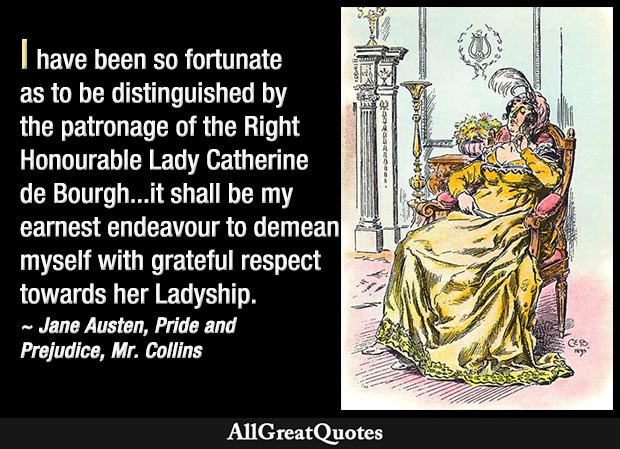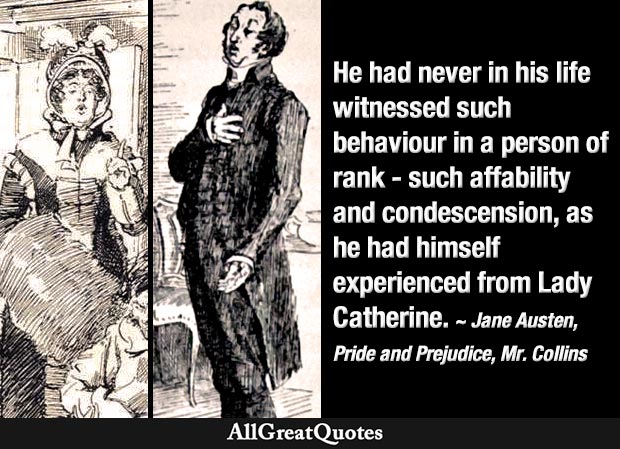"All! – What, all five out at once? Very odd! – And you only the second. – The younger ones out before the elder are married! – Your younger sisters must be very young?"
"Yes, my youngest is not sixteen. Perhaps she is full young to be much in company. But really, Ma’am, I think it would be very hard upon younger sisters, that they should not have their share of society and amusement because the elder may not have the means or inclination to marry early. – The last born has as good a right to the pleasures of youth, as the first. And to be kept back on such a motive! – I think it would not be very likely to promote sisterly affection or delicacy of mind."
"Upon my word," said her ladyship, "you give your opinion very decidedly for so young a person. Pray, what is your age?"
"With three younger sisters grown up," replied Elizabeth, smiling, "your ladyship can hardly expect me to own it."
Lady Catherine seemed quite astonished at not receiving a direct answer; and Elizabeth suspected herself to be the first creature who had ever dared to trifle with so much dignified impertinence.
– Jane Austen
Pride and Prejudice, Chapter 29. This passage is a foretaste of things to come, as Elizabeth stands her ground with Lady Catherine de Bourgh, a formidable woman used to getting her own way. Elizabeth refuses to tell Lady Catherine her age when she asks her and doesn’t concede to the noble lady’s opinions. Lady Catherine comments that Elizabeth is very forward about offering her opinions. The famous clash later between the two as Lady Catherine attempts to block any marriage between Darcy and Elizabeth is foreshadowed here.


